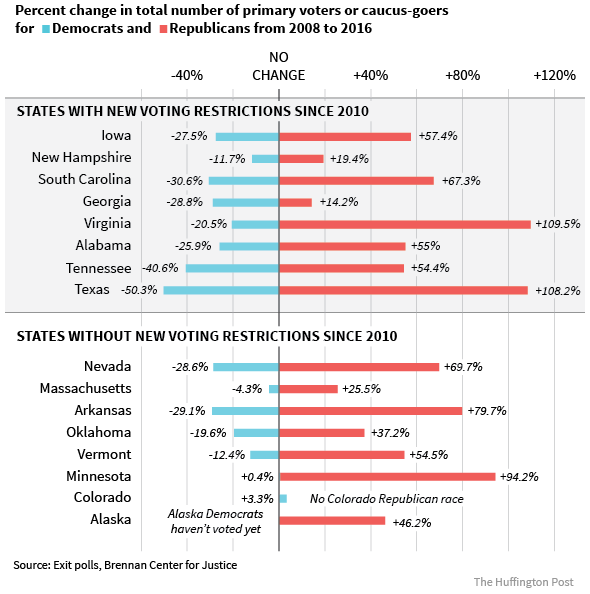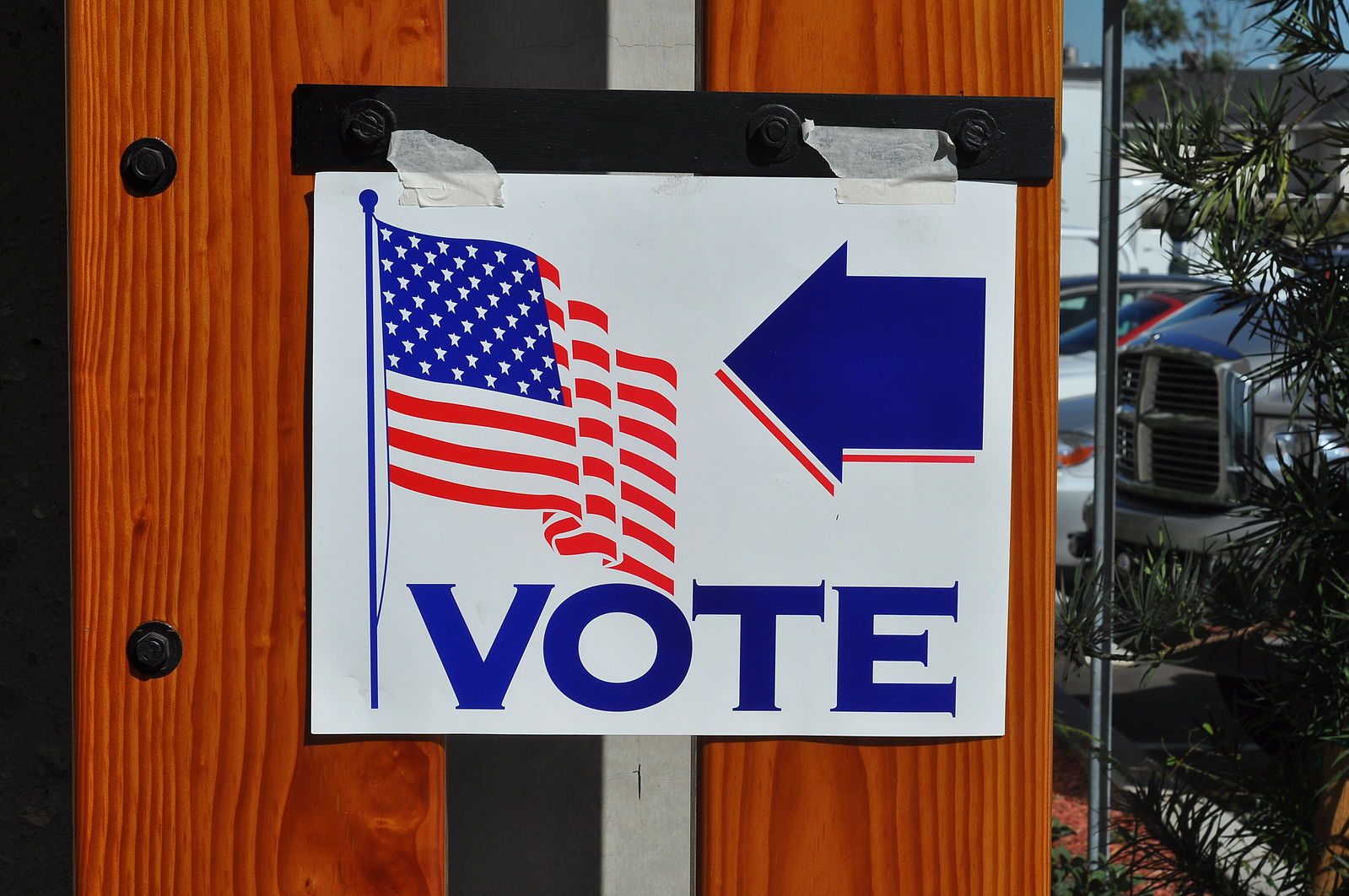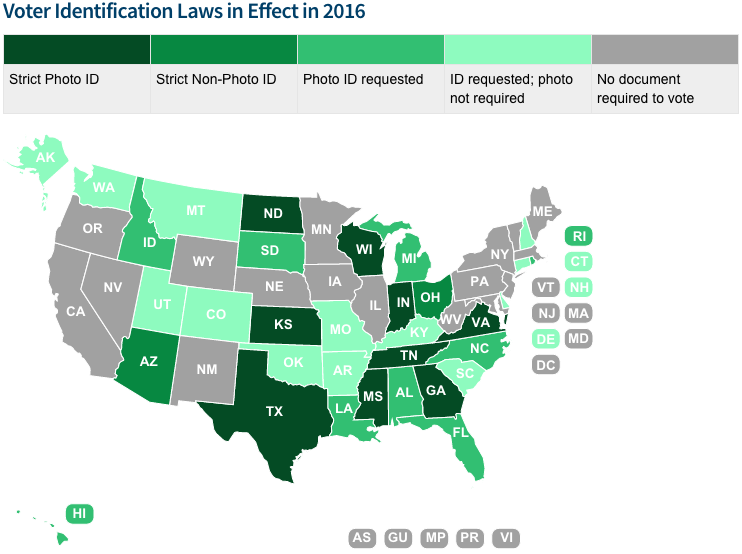Are Voter ID Laws Suppressing Turnout in Primaries?
By:
Much has been made of voter turnout trends this election cycle, with Republican numbers generally higher than previous years, and Democratic turnout slumping in many primary and caucus states.
And while the once crowded and endlessly controversial Republican contest can explain high GOP turnout, there's less of a consensus on why Democratic turnout has been so low. However, one theory posits that new and existing voter identification laws in some 36 states this election cycle have had a disproportionate effect on Democrats.
As the Huffington Post noted earlier this month, ID laws could disproportionately affect Democratic voters since minority communities, who may have a harder time obtaining the correct identification, tend to vote Democrat. Research suggests that the laws "affect voter turnout and disproportionately affect certain types of voters," according to Jennifer Clark, a lawyer at New York University's Brennan Center's Democracy Program, who spoke to the Huffington Post earlier this month.
HuffPost put together a graph tracking turnout changes in states with new voting restrictions since 2010.
 Huffington Post/Brennan Center for Justice - huffingtonpost.com
Huffington Post/Brennan Center for Justice - huffingtonpost.com
As the chart shows, Democratic turnout in both states with and without new laws is down compared to previous primaries, but it appears to be more pronounced in the former category.
It's still too early to tell just how much voter ID laws have affected voter turnout. Other factors, like Republican enthusiasm to vote a Democrat out of the White House, and lower Democratic turnout because of complacency with their candidate choices, likely have strong effects on overall turnout.
 Wikimedia/Tom Arthur - wikimedia.org
Wikimedia/Tom Arthur - wikimedia.org
Still, ID laws have caused concern among those who see the requirements as barriers to boosting America's already low voter turnout.
Obtaining the proper photo ID is difficult for some people, and the requirements can vary significantly from state to state.
 NCSL - ncsl.org
NCSL - ncsl.org
Research suggests that for elderly, minority, and low-income groups, getting the proper ID can be expensive and burdensome. As a 2012 report from NYU's Brennan Center found:
"Nearly 500,000 eligible voters do not have access to a vehicle and live more than 10 miles from the nearest state ID-issuing office open more than two days a week. Many of them live in rural areas with dwindling public transportation options."
ProPublica notes that even in states that offer free IDs to would-be voters, obtaining the documents needed to get an ID may still pose a financial barrier. According to the Brennan Center report, qualifying documentation like birth certificates can cost between $8 and $25 — which may not sound like much, but is significant for those who must factor in transportation costs, and the lost work time spent traveling to an ID issuing office, which might maintain limited operating hours.
The requirements are such that some have even likened ID laws to a modern form of poll taxes, which were the voting fees levied in some Southern states during the Jim Crow era as a measure to discourage poor Black Americans from voting.
"Many of those without IDs would have to travel great distances to get them and some would struggle to pay for the documents they might need to obtain them," then-Attorney General Eric Holder said in a 2012 speech addressing Texas' especially strict ID laws. "We call those poll taxes."
